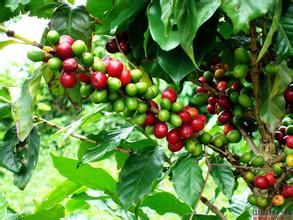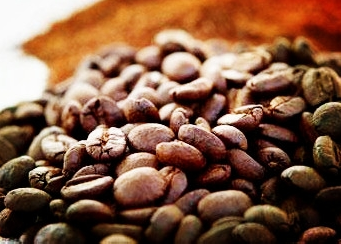The flavor of Tanzanian coffee describes the flavor of Tanzanian coffee. How about Tanzanian coffee?
Due to political instability and rampant diseases and insect pests, the coffee industry in Tanzania has been damaged, leading to a decline in the overall level of coffee and instability in quality, which in turn lead to lower prices, which are usually the result of a further decline in the coffee industry. More notably, it is estimated that more than 12 per cent of Arabica coffee grown in northern Tanzania from 1969-1985 was smuggled into Kenya. Recently, however, the country's coffee industry has shown signs of improving. Although the process of improvement is slow, it is still encouraging because the quality of the coffee in Tanzania is excellent.
Coffee producing areas in Tanzania:
Coffee bean-shaped berry coffee in Tanzania produces a lot of coffee and is said to be more fragrant than ordinary coffee. Generally speaking, coffee beans in Tanzania have extraordinary quality. For example, the fine Tanzanian AA coffee (ChaggaAA), produced in the Moshi district near Mount Kilimanjaro, is famous for its full-grained and fragrant quality.
The characteristics of Tanzanian coffee:
Flavor: full-bodied and refreshing, with lower acidity than Kenyan coffee, pure flavor and aroma
Suggested baking method: medium baking
★★: good
Market for coffee in Tanzania:
Coffee exports from Tanzania (Tanzania) play an important role in the whole national economy.
In the past, the coffee industry in Tanzania has been dominated by manor cultivation, but now more than 85% are grown by small farmers. Many small farmers form cooperative organizations, the most important of which is the Kilimanjaro Cooperative Alliance (KilimanjaroCooperativeUnion, referred to as KNCU). Tanzanian coffee is sold by the Tanzanian Coffee Management Council (TanzanianCoffeeMarketingBoard, TCMB) to private exporters by auction. In the 1980s, most coffee sales in Tanzania shifted from auctions to being sold directly to the Tanzania Coffee Management Committee.
That has changed and the coffee industry is being reformed to allow individuals or groups to buy coffee in the future, when coffee will be graded in different ways in order to attract buyers from Germany, Finland, the Netherlands, Belgium and Japan.
Important Notice :
前街咖啡 FrontStreet Coffee has moved to new addredd:
FrontStreet Coffee Address: 315,Donghua East Road,GuangZhou
Tel:020 38364473
- Prev

The origin of Peruvian coffee the characteristics of Peruvian coffee the Peruvian coffee market
Peru (Peru) is also a big coffee producer. Peruvian coffee producing areas: up to 98% of Peruvian coffee is grown in forest areas, and most of the producers are small farmers. Peru's finest coffee is produced in Chanchmayo, Cuzco, Norte and Puno. Most Peruvian coffee is grown under natural conditions, but it is difficult to confirm
- Next

The Taste of Sumatran Coffee the Story of Sumatran Coffee Wax Coffee
Manning Coffee: Manning Coffee is produced in Sumatra, Indonesia, Asia, also known as Sumatran Coffee. Her flavor is very rich, fragrant, bitter, mellow, with a little sweetness. Most coffee lovers drink on their own, but it is also an indispensable variety for blending coffee. Manning: the palate is rich and solid, with a pleasant sour taste. Mellow smell, acidity
Related
- Detailed explanation of Jadeite planting Land in Panamanian Jadeite Manor introduction to the grading system of Jadeite competitive bidding, Red bid, Green bid and Rose Summer
- Story of Coffee planting in Brenka region of Costa Rica Stonehenge Manor anaerobic heavy honey treatment of flavor mouth
- What's on the barrel of Blue Mountain Coffee beans?
- Can American coffee also pull flowers? How to use hot American style to pull out a good-looking pattern?
- Can you make a cold extract with coffee beans? What is the right proportion for cold-extracted coffee formula?
- Indonesian PWN Gold Mandrine Coffee Origin Features Flavor How to Chong? Mandolin coffee is American.
- A brief introduction to the flavor characteristics of Brazilian yellow bourbon coffee beans
- What is the effect of different water quality on the flavor of cold-extracted coffee? What kind of water is best for brewing coffee?
- Why do you think of Rose Summer whenever you mention Panamanian coffee?
- Introduction to the characteristics of authentic blue mountain coffee bean producing areas? What is the CIB Coffee Authority in Jamaica?

